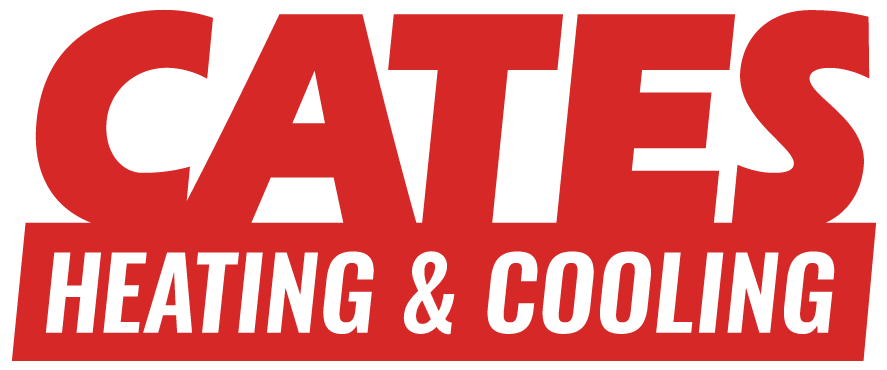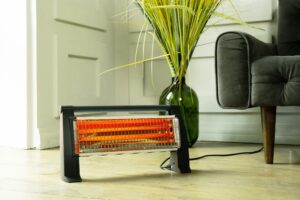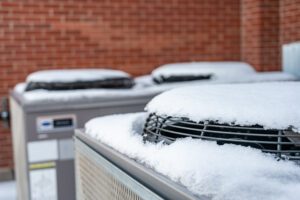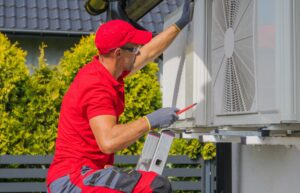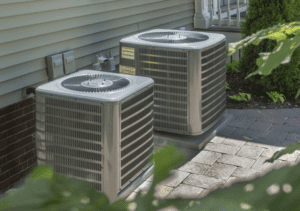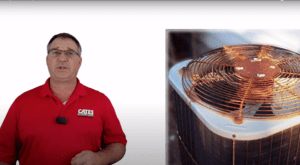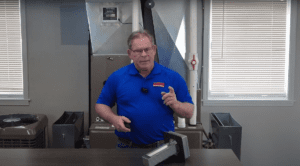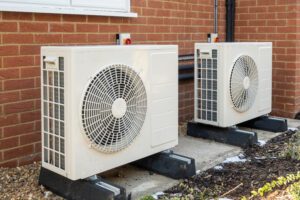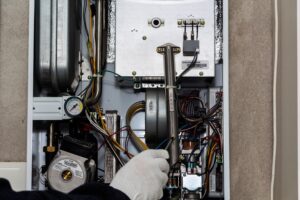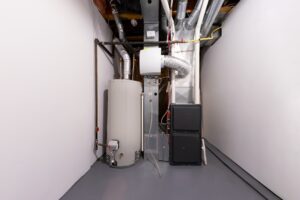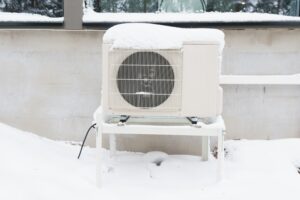Owning a pet comes with a lot of responsibility. The same can be said for owning an HVAC system. When you have both, it can seem like you have a mountain of extra work to do to keep your HVAC unit clean and in good working order. Cates Heating and Cooling knows that a lot of our customers have pets, so we have some HVAC maintenance tips for our pet owner clients.
Groom Your Pets
All pets will have different grooming needs. The best thing that you can do for your pet is to make sure that they are kept well-groomed. Base your grooming regimen off of the species and breeds of your pets. Regular baths and brushing can help prevent a buildup of hair, fur, and pet dander in your home, which can clog up air filters and get caught in air vents throughout your house.
Keep Pets Safe
Exposed wires from any type of electronic device can be a hazard for pets. Since you have both an indoor and outdoor unit for your HVAC system, it is important that you regularly check for any potential threats to your pet both inside and outside. It is best to restrict access to both units to keep your pet as safe as possible.
Take Extra Steps to Keep Air Clean
Fur and pet dander are inevitable if you own a pet. These can cause real problems for those who live in your home, especially if anyone has allergies or asthma. The best way to keep the air in your home as clean as possible without additional intervention is to make sure that your air filters are kept clean. Dirty air filters will either let less air through the vents into your house or start to fail and let all the gunk you are trying to keep out of your air get into the air you are breathing.
Air purifiers can help remove the allergens produced by pets from the air in your home. An air purifier is very beneficial when allergies and asthma are present in your home. There are a variety of different options available, but a whole home air purifier will do the best job of removing these allergens from the air of your home.
Keep Pets Comfortable
Since pets are covered in fur, they can get pretty warm, especially when the thermostat is set too warm. When you are out of the house, you may want to increase or decrease the temperature accordingly. But, if you have pets in your house, it is a good idea to not make it too hot or cold in the house while you are away. Even with blankets, your pet may get too cool if they have short fur in the winter. However, pets with long fur can really get uncomfortable when it is too hot in the house. Comfort is one factor, but you also need to think about your pet’s safety. You can cause heat stroke if your pet gets too hot, which is a very serious medical condition.
Keep Floor Vents Clean
Pet fur is notorious for getting into floor vents. Dogs and cats often like to sit on these vents to stay warm or cool. While lying there, fur will fall into the vents. As the fur builds up, it can cause a loss of air flow into your home when these vents are clogged up with fur. To do this, you will want to take the vent covers off and vacuum inside the vents. You can also wash the vent covers with soap and water. Make sure the covers are dry before putting them back on the vents.
You can also prevent more fur from getting into your vents by keeping the rest of the house clean. Make sure floors are always swept and that stray pet fur gets picked up right as soon as possible.
Stay Up to Date with HVAC Maintenance
Professional HVAC maintenance is one of the best ways to make sure that your HVAC unit is taken care of appropriately. A professional technician can double check that your HVAC system isn’t being damaged by your pet. The technician can not only make service the unit and make sure that everything is in good working order, but they can also make suggestions to help you keep your HVAC unit safe from your pet.
For example, you can create a barrier around your outdoor unit to prevent your dog from urinating on it. Your technician may also provide you with tips for keeping your pet away from the indoor system.
To learn more about protecting your pet from your HVAC unit and your HVAC unit from your pet, contact Cates Heating and Cooling at 913-888-4470.
